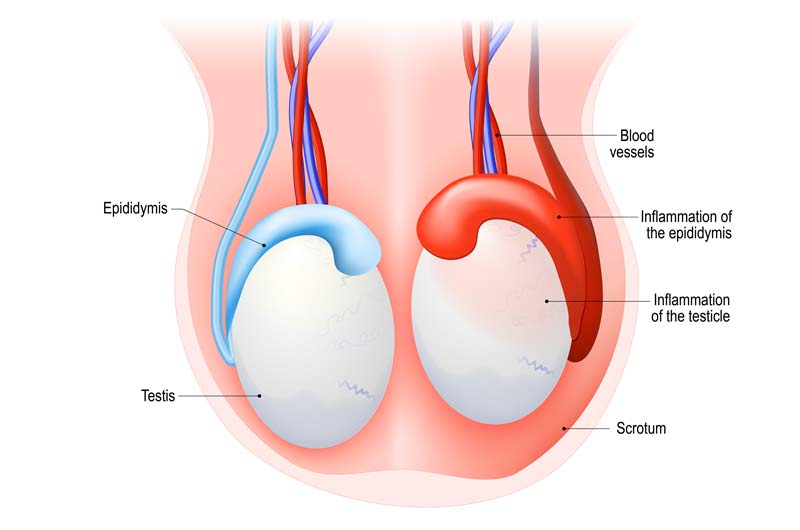Acute gonococcal epididymo orchitis is a severe inflammatory condition affecting the epididymis and testes, typically caused by Neisseria gonorrhoeae. This sexually transmitted infection (STI) can lead to significant urogenital complications if left untreated. Understanding its etiology, symptoms, diagnosis, and management is crucial for effective treatment and prevention.

Pathophysiology of Acute Gonococcal Epididymo Orchitis
The infection primarily spreads through unprotected sexual contact, ascending from the urethra to the epididymis and testes. The inflammatory response leads to pain, swelling, and potential infertility if not promptly addressed.
Risk Factors
- Unprotected Sexual Activity: Increases risk of STI transmission.
- Multiple Sexual Partners: Higher exposure to gonorrheal infection.
- Previous History of STIs: Increased susceptibility to reinfection.
- Weakened Immune System: Reduces the body’s ability to fight infections.
- Recent Urogenital Procedures: Increases risk of bacterial ascension.
Clinical Symptoms
Patients commonly experience:
- Severe Testicular Pain: Often unilateral, with tenderness.
- Scrotal Swelling and Redness: Inflammation leading to discomfort.
- Dysuria: Painful urination due to urethral involvement.
- Urethral Discharge: Purulent and typically yellow or green.
- Fever and Malaise: Indicating systemic infection.
Diagnosis
1. Clinical Examination
- Testicular and epididymal tenderness upon palpation.
- Swelling and erythema of the scrotum.
2. Laboratory Tests
- Urethral Swab and Culture: Identifies N. gonorrhoeae.
- Urinalysis and Urine Culture: Detects bacteria and white blood cells.
- Nucleic Acid Amplification Test (NAAT): Highly sensitive for gonorrheal detection.
3. Imaging Studies
- Scrotal Ultrasound: Differentiates from testicular torsion and confirms inflammation.
Treatment Strategies
1. Antibiotic Therapy
- Ceftriaxone (IM) + Doxycycline (Oral): First-line treatment.
- Alternative Regimens: Azithromycin or fluoroquinolones in resistant cases.
2. Supportive Care
- Scrotal Elevation: Reduces swelling and discomfort.
- Pain Management: NSAIDs like ibuprofen for symptomatic relief.
- Hydration and Rest: Supports immune function and recovery.
3. Sexual Partner Management
- Partner Notification and Treatment: Prevents reinfection.
- Abstinence During Treatment: Reduces transmission risk.
Prevention Strategies
- Consistent Condom Use: Lowers risk of STI transmission.
- Routine STI Screening: Detects infections early.
- Prompt Treatment of Sexual Partners: Minimizes recurrence.
- Public Health Education: Increases awareness of STI risks.
Complications and Prognosis
If untreated, complications may include:
- Testicular Abscess: Requires surgical drainage.
- Chronic Epididymitis: Persistent pain and discomfort.
- Infertility: Due to testicular damage.
- Disseminated Gonococcal Infection (DGI): Life-threatening systemic involvement.
With early and appropriate treatment, most patients recover fully without long-term complications.
Acute gonococcal epididymo orchitis is a serious but treatable condition requiring prompt medical attention. Early diagnosis, appropriate antibiotic therapy, and preventive strategies play key roles in managing the disease and preventing complications. Increasing awareness and promoting safe sexual practices can significantly reduce the incidence of this infection.